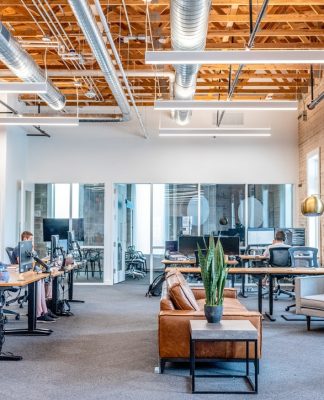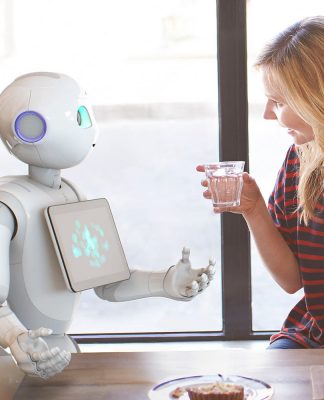The rise of artificial intelligence (AI) is a cause for concern for many people (some of it warranted and some not so much). While some people who are worried about the rise of AI feel this way because of a fear that machines will eventually overthrow humanity and create a Matrix-type dystopia.
However, a much more rational fear is the fear that as AI becomes more prevalent among society, many jobs will be eliminated—specifically low-skilled positions such as cashiers and some retail positions. However, with the amount of research going into self-driving cars, AI could also lead to the loss of many transportation jobs.
The debate isn’t as black and white as job loss or no job loss; it’s much more nuanced. While jobs likely will be eliminated, that doesn’t mean there won’t be work for people to do—it just means that work will be in a different capacity.
Jobs Loss
According to some economists, up to 40 percent of jobs in the U.S. could be at risk of becoming obsolete due to widespread AI implementation.
Some of the most vulnerable industries to job loss due to AI are construction, retail, food service, transportation, and manufacturing.
However, while 40 percent is an alarming number. Recent findings indicate that only five percent of those jobs will actually become completely automated.
Different Jobs
This means that the majority of jobs won’t be completely lost, but rather, the employees will have to alter their tasks and the way they operate—it won’t mean jobs are gone, they’ll just be different.
For example, if a retail establishment decides to replace all cashiers with automated machines that could mean the loss of cashier jobs, but it could also mean an increase in jobs for people who oversee the machines—what if one breaks down? It could also lead to more security jobs (people might feel more inclined to attempt to shoplift if they only thing standing in their way is a robot).
Staying the Same
While many jobs will be at risk of adapting in some capacity as AI becomes more widespread, certain industries either won’t change at all, or the change won’t impact the type of work that is done.
While AI can help with numbers and information, it’s not great at producing human emotions or connections, meaning jobs that involve person to person interaction, such as social workers and therapists are likely not going to experience significant change.
New Industries
One of the most underrated reasons to be excited about the prospect of AI becoming more popular is the assumption that it will bring new industries and jobs that we don’t currently have now and can’t even conceive yet.
Think about how many different industries came into being with the invention of the computer, and the internet. There are so many jobs we currently have thanks to these inventions we never could have never imagined before.
It only makes sense that as AI becomes more prevalent and accepted among society, there will be new industries and jobs that will replace any that might become obsolete.





